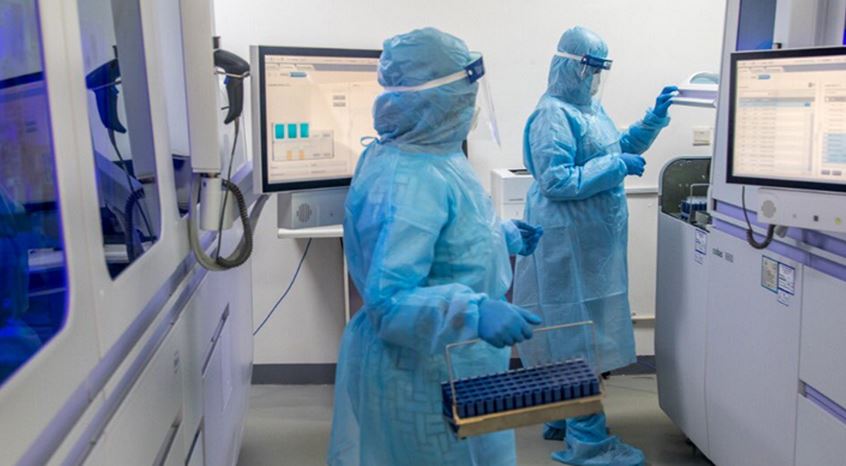How Lagosians Have Been Mistaking COVID-19 For Malaria – Commissioner Reveals
Medical experts however say the best way to distinguish malaria from COVID-19 is to get tested.

File photo
According to The PUNCH, the Lagos Commissioner for Health, Prof. Akin Abayomi, says the state is recording cases of people treating themselves for malaria only for them to realise after testing that it is COVID-19.
Medical experts however say the best way to distinguish malaria from COVID-19 is to get tested.
“We are seeing too many cases of people treating themselves for malaria multiple times and only realise it’s COVID-19.”
The commissioner said sometimes, such people realised the error “too late” and sometimes “show up too sick.”
“The symptoms are similar, but they are not the same. If you suspect malaria, please go for a COVID-19 test,” Abayomi counselled.
The Nigeria Centre for Disease Control had earlier said though COVID-19 presents symptoms similar to malaria such as fever, both diseases are caused by different organisms and differ in mode of transmission.
NCDC, however, warned Nigerians against mistaking COVID-19 and malaria for the same infection.
Speaking with PUNCH HealthWise, renowned Nigerian virologist, Prof. Oyewale Tomori, said laboratory investigation is the only way to correctly and definitively diagnose either COVID-19 or malaria in locations where malaria is endemic.
“Malaria or COVID-19 affects people in different ways. Most infected people will either be asymptomatic, or develop mild-to-moderate illness and recover without hospitalisation.
“The most common symptoms of COVID-19 are fever, dry cough and tiredness, while the less common symptoms include headache, aches and pains, sore throat, diarrhoea, conjunctivitis, and loss of taste or smell.
“Some people also experience serious symptoms like difficulty in breathing or shortness of breath, chest pain or pressure, loss of speech or movement,” Tomori said.
The virologist added that malaria shares some of these symptoms with COVID-19 such as chills, fever and sweating, headache and pain in muscles or abdomen, nausea or vomiting and chest or abdominal pain and sometimes, cough.
“It is difficult to differentiate between malaria and COVID-19, especially mild cases, in an area endemic for malaria.
“Therefore, laboratory investigation is the only way to correctly and definitively diagnose either COVID-19 or malaria in locations where malaria is endemic,” Tomori noted.